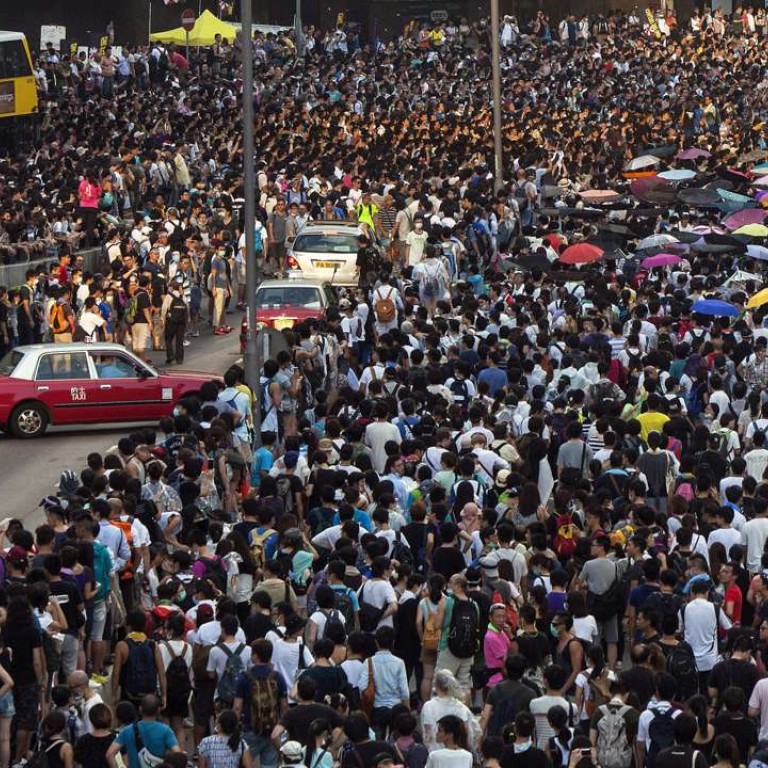
Second anniversary of Occupy protests a reminder that political divide still needs to be bridged
There can be no progress on reform unless the pan-democrats and Beijing find some common ground
Today marks the second anniversary of the start of the landmark Occupy protests. Some of those who joined the 79-day street blockades in the heart of Hong Kong’s business district will return to the government headquarters this evening. While the rally is unlikely to draw a big turnout, the impact of the pro-democracy campaign has become even more significant, with a few prominent protesters elected to the legislature earlier this month.
There can be no dispute that the protests marked a new chapter in Hong Kong politics. While it failed in its goal to bring about greater democracy, it did give rise to a growing sense of localism, a trend that makes Beijing uncomfortable. Calls for the city to break away from China have also become more vocal.

With at least six new lawmakers advocating for some form of self-determination, the stakes have become even higher.That little has been done to bridge the political divide over the past two years is regrettable. Some newly elected pan-democrat lawmakers have vowed to push the government to relaunch the political reform process. Try though they may, the issue is unlikely to be put back on the agenda before the next chief executive is returned early next year. He or she will then set out the priorities for Hong Kong in the next five years.
It remains the wish of the people to put in place an acceptable model for universal suffrage as soon as possible. Whoever is at the helm has to respond to the democratic aspirations sooner or later.
But as experience has showed, nothing can be achieved without Beijing and the pan-democrats finding some common ground. That makes rebuilding mutual trust all the more important. Sadly, both sides have yet to learn from the failed political reform drive in 2014. Politicians should realise there is a limit as to how far reforms can go under the existing constitutional order. There is also a need for Beijing to better feel the pulse of the people and be prepared to respond to their quest for democracy while also maintaining the “one country, two systems” principle.

